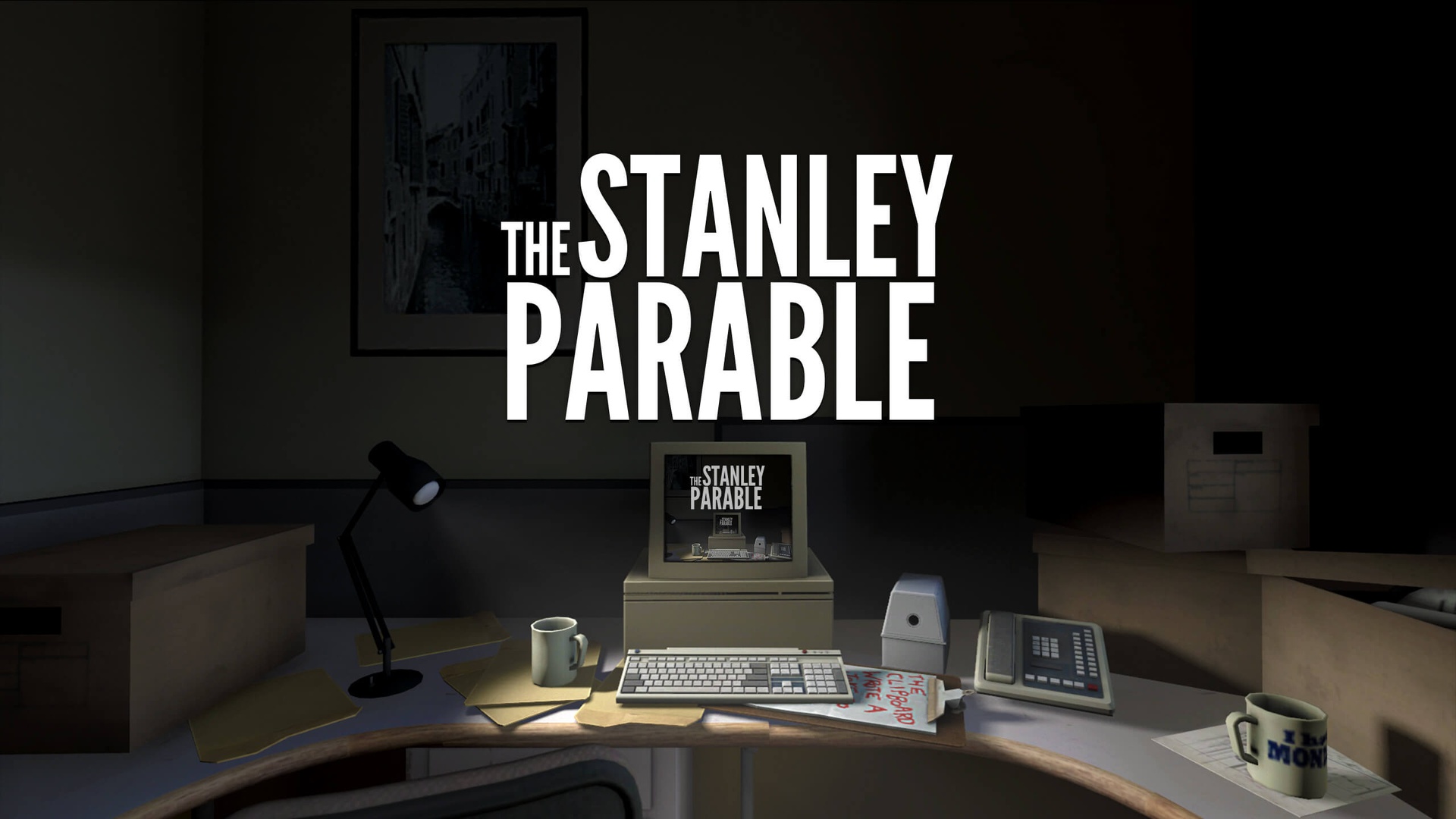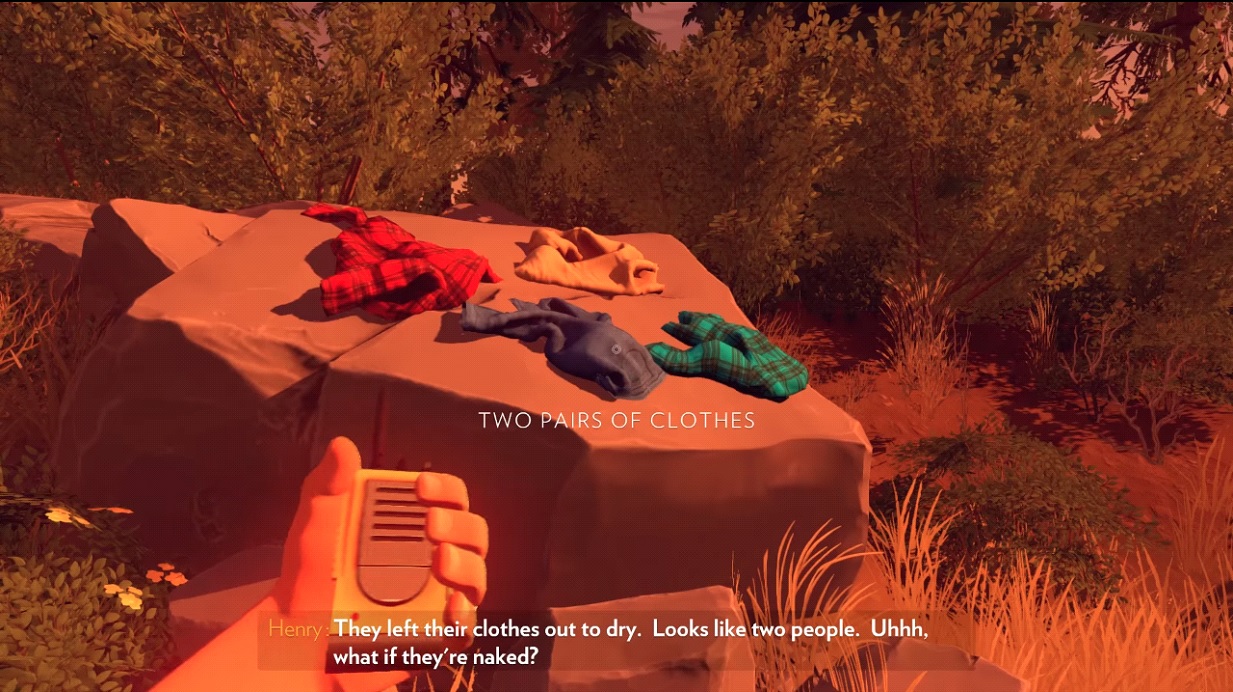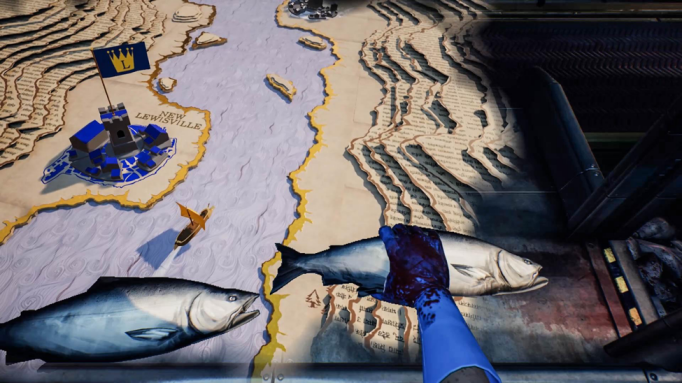
The Stanley Parable
Release Date Developer Publisher 17 Oct 2013 Galactic Cafe Galactic Cafe
The Stanley Parable was, for many reasons, one of the major breakthrough games in the walking simulator genre. While the gameplay mechanics are only a light series of choices the player makes on their adventure, the narrative mechanics are witty and respond to the players actions. This is a slight departure from previous games in the genre, like Myst, which instead focus almost entirely on puzzle-solving.
As a result, the game encourages you to play through it multiple times to experience the outcome of your choices, especially ones you might not otherwise have made. These stories then end in a variety of absurd ways from stopping a mind control device puppeteering everyone in the office to realizing the whole thing was all a dream.
When I first played through the game, the strange mechanics really stuck with me. In particular, it felt unlike so many other games, due to the focus on narrative, environment, and player interaction rather than novel gameplay mechanics.
While true, walking simulators can be a slog with poor pacing, The Stanley Parable’s eclectic variety of plot lines make discovering a new ending something players will want to pursue as each is distinct from the rest.
We can see this trend of variety as a means of enticing the player used by walking simulators released since. Firewatch, for example, involves the protagonist frequently communicating via walkie-talkie with a narrator-like, secondary character that responds to your actions, much like the Narrator in The Stanley Parable.
 |  |
|---|
The games above, Firewatch (left) and What Remains of Edith Finch (right) use similar ideas of narrative-gameplay coupling as in The Stanley Parable.
Similarly, What Remains of Edith Finch contains a wide variety of disparate experiences as the player learns about the history of each member of the family. The interaction with the environment changes and feels tightly bound with the narrative, creating a satisfying “Aha!” moment for both solving the puzzle and uncovering new details within the story.
By coupling the narrative experience more tightly to the gameplay via responsive narration and impactful player choice, The Stanley Parable set the stage for the future of walking simulators and will remain a foundational piece in my video game repertoire.